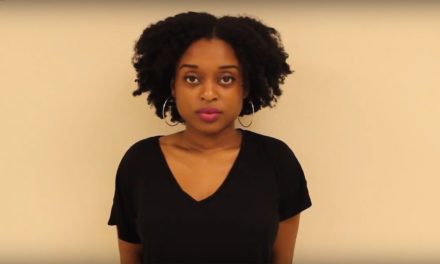What can students do about COVID-19? On May 8, over 500 students participated in a virtual hackathon hosted by the Emory Global Health Institute (EGHI) and Georgia Institute of Technology (Georgia Tech) called EGHI/GT Hack COVID-19, in a call to find practical public health technologies to address COVID-19.
The event occurred in two rounds, from May 8 to 10 and May 11 to 16, and students were tasked with finding solutions to particular aspects of COVID-19 such as streamlining test result data integration between testing facilities and hospitals, helping ensure practical social distancing measures, and more.
A total of 69 judges from a variety of professional backgrounds including health care, business and technology, evaluated five-minute video pitches submitted by teams, explaining why and how their design worked.
The EGHI, Emory School of Medicine, Georgia Tech’s CREATE-X accelerator program and Wallace H. Coulter Department of Biomedical Engineering at Georgia Tech and Emory partnered with the hackathon.
The judges scored the teams on a scale of one to five based on relevance, the problem’s magnitude or impact, innovation and creativity of the solution, the solution’s viability and delivery of pitch. Out of 105 teams in the first round, nine teams were chosen to move on to the final round.
In the second and final round, 45 Emory and Georgia Tech students comprising nine teams participated. At this point, each team had refined its design and focused on its practical application. Each team shared their five-minute video and participated in a live five-minute Q&A session via Zoom with five highly distinguished judges, including Georgia Tech College of Engineering Dean Steven McLaughlin, Kaneva Inc. founder and CEO Chris Klaus, Atlanta Tech Park founder and CEO Robin Bienfait, Stanford University Center for Innovation in Global Health Director Michele Barry, and Emory Medical School Associate Professor Aneesh Mehta.
The top three teams, CAPACIT, CareRing and CovidHub, each received a $10,000 prize and enrolled in CREATE-X, a program that educates and empowers students to successfully launch their startups. The teams also received an additional $4,000 grant to further develop their design via CREATE-X.
CAPACIT consisted of four students from Georgia Tech, Manasvi Sundar (21PH) and Alexandra “Allie” Tuttle (21PH). Working on the social distancing aspect of COVID-19, the team created a mobile app called “CAPACIT,” which tracks current population densities of business buildings in real time, providing a practical way for both businesses and customers to practice social distancing. Their solution uses installed video cameras or manual counters to track people entering buildings. Data from the cameras are fed into the app so customers can know how densely populated a store or business is.
Sundar, who’s majoring in public health with a concentration in epidemiology, said that her team was “really flexible and dynamic,” despite the virtual setting of the hackathon. Sundar said her team quickly adapted by focusing on ideas “that would require software development” as opposed to ideas requiring “someone to be on campus.”Sundar’s team hopes to launch their mobile app as a viable and accessible product with the help of CREATE-X.
CareRing consisted of five students from Georgia Tech and Michael Yu (21Ox). Looking at the health care delivery aspect of COVID-19, CareRing created a mobile app called “CareRing,” which informs families and caregivers at nursing homes of their residents’ physical and mental health as well as potential symptoms of any disease.
Yu, majoring in quantitative sciences and biology, found that coming up with the idea was the most difficult part because many ideas were “already done before.” Nonetheless, Yu and his team developed their idea by focusing on specific consumers, the elderly population and long-term care facilities.
In the second round of the competition, Yu and his team reached out to real long-term caregivers in order to create a product that was useful. Yu said that, during the Q&A session, the judges asked insightful questions about commercial and long-term viability after COVID-19, helping them “think about what kind of product [they] are actually trying to give out.”
Yu and his team continue to make improvements on their product with the help of CREATE-X.
Lastly, team CovidHub consisted of four students from Georgia Tech and Colin Emerson (21B) and Shirley Gao (20B, 21PH). Looking at testing for COVID-19, the team created “CovidHub,” a web-based platform which integrates COVID-19 test results into legacy electronic medical records.
“We knew that if we wanted to be competitive, we needed to focus and not tackle the world that is ‘coronavirus,’” Gao said. “It was really easy to start going off into a million different directions but trying to rein in that tendency and focus was a challenge.”
Sundar, Yu and Gao all found the hackathon to be a creative and invaluable team experience in shaping ideas into a reality to help people.
As one of the seven hackathon organizers, Operations and Evaluation Manager at EGHI Keriann Roy found the hackathon to be a success and particularly enjoyed seeing how many motivated students participated. She expects hackathons in partnership with EGHI and Georgia Tech to continue.
“We did not expect such a turnout,” Roy said. “We had 650 register and 508 actually participated in the competition. Originally when we were planning this, we definitely thought there would be under 100. It was awesome.”
Roy was also surprised to see turnout from individuals outside of the Georgia Tech and Emory community.
Although COVID-19 persists, the collaboration between Emory and Georgia Tech campuses facilitated an invaluable opportunity to meaningfully respond to the challenges the disease poses to our world today.
Editor’s Note: Emory Life Editor Angela Tang (22C) was not involved in writing or editing this article.
Claire Lee (22C) is from Suwanee, Georgia, majoring in international studies and music performance on a pre-law track. Outside of the Wheel, she enjoys playing the cello, reading, hiking, replicating impressionist artists' paintings and creating obscure Spotify playlist names (found at claire.lee2204).




